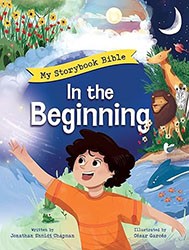Rabbi Salkin sees the breaking by Abraham of his father’s idols as a paradigmatic story that opens a main current of Jewish experience and thought. Salkin notes that the father, Teraḥ, began a journey but then (theologically speaking) settled prematurely in a new place. Abraham’s action begins the continuation of the journey into the kind of exilic existence that has characterized most of Jewish history. Breaking the statues of the pagan deities identifies Abraham to God as his worthy vessel for the people who will become Israel.
In tidy chapters and subchapters, and in a breezy, excited style, the author explores all aspects of the meaning of brokenness as a Jewish identifier. Likewise, he explores the tension of stasis and change. To break is to break away, to break convention, and ultimately to create anew. Salkin reminds us that idolatry does not require idols. Too strong a focus on ritual for its own sake can become idolatrous. An obsession with halakha or institution building (especially the material building) can shut us off from our spiritual nature and journey.
Smoothly weaving together contemporary scholarship, midrashic elaborations of scripture, and meditation on the key symbols that evoke his central issue, Rabbi Salkin provides a map of Judaic meaning. By comparing and contrasting Abraham’s breaking of his father’s idols with the breaking of the first set of tablets by Moses, he opens up a investigative mode that has far-reaching consequences for the world Jewish community, both present and future.
Salkin writes, “Healthy iconoclasm – shattering the false gods of class, privilege, power, radical individualism, and even the unfettered worship of science – would bring together believers of all faiths, allowing them to see beyond their crucial theological differences and retrieve, once again, the mantle of their father, Abraham.” Bibliography, notes.
Philip K. Jason is professor emeritus of English at the United States Naval Academy. A former editor of Poet Lore, he is the author or editor of twenty books, including Acts and Shadows: The Vietnam War in American Literary Culture and Don’t Wave Goodbye: The Children’s Flight from Nazi Persecution to American Freedom.




